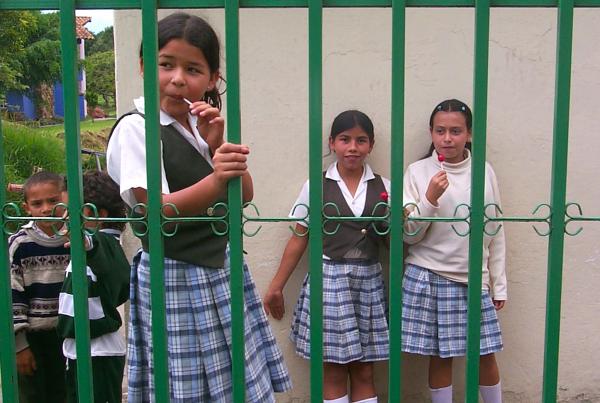I thought I had read everything there was to know about the North American Language and Culture Assistants (NALCAP) application process.
I’d sent in all my required documents the day the application opened. I had a low inscrita (registration) number, meaning my chances of being accepted to the program were high. I had researched all the regional placements and carefully weighed my options before determining my top three choices: number one being Andalusia in the south, followed by Galicia and País Vasco. I hoped to teach in Seville or Granada.
In late April, I received an email saying I had received a placement in my preferred region, Andalusia. I happily accepted.
But in all my careful preparation and Reddit deep dives, I had missed one crucial piece of information: In the Andalusia region, auxiliares de conversación (language assistants) pick their placement on a first-come, first-served basis. I missed the email with the link to select my municipality, and by the time I logged on, NALCAP had assigned one for me—a pueblo with a population of 10,000 people located an hour from the closest major city.
I had known a pueblo (small town) placement was possible, but getting one because of my negligence made it more frustrating. I had envisioned a lovely city apartment rooming with other language assistants. I figured I’d travel a weekend or two out of the month and spend my other Friday nights with friends. But now, as the only aux in a pueblo far from any major airport and only a few bars, the reality looked very different. I was out backpacking Central America when I received the placement. Without other plans for the upcoming year, I figured I’d just accept, enjoy the rest of the trip I was currently on, and reassess later.
Upon arriving home, I began the daunting visa process.
Everything was charting along steadily until I submitted a request for my Apostille, a document from the Department of State that verifies my background check. The document was taking months, and requests to my congressmen to expedite the process were initially unanswered. You cannot get your visa without the document, and it started to look like Spain wouldn’t happen for me.
A not-so-small part of me felt relieved. I began applying for jobs in my hometown and planning my life here. I don’t travel because I don’t like home; I love home. Living with my parents is enjoyable and easy, and many friends live within walking distance from my house. I’d live here and save money, maybe even repaint my childhood bedroom. I could still be the person who had tried to do the scary and exciting thing, and I’d feign a deep disappointment it hadn’t worked out. Then my Apostille arrived.
If I was happy at home, why was I moving across the world to a small town all by myself?
Everyone in my life was excited for me, but I couldn’t stop envisioning myself in this small town alone. I was scared of feeling isolated and knew from prior travels how exhausting and frustrating learning a second language is.
For a week, I couldn’t sleep.
I’d wake up and google for the 50th time how far the pueblo was from Granada. When the bus schedule was too limited to make commuting from the city work, I explored buying a car. When that proved far-fetched, I read every testimonial I could find about living in a pueblo, searching desperately for information to quell the anxiety. If I was happy and comfortable at home, why move across the world to a small town all by myself?
The hardest part of anxiety is how it clouds my judgment. Was I freaking out because a change of this magnitude is scary or because moving to Spain was simply the wrong decision? I revisited my reasons for applying to the program. Above all, I wanted to improve my Spanish. Learning another language is hard—I have experienced the frustration of being unable to communicate and the embarrassment of saying the wrong thing. But making someone laugh in your second language or realizing you’ve had an hour-long conversation without speaking any English makes the discomfort worth it. Living in a small town would force me to speak the most Spanish. I’d be frustrated a lot, but I’d improve even more.
I applied for the program because I wanted to be part of a community.
Living in a city, I would more easily find a community with other language assistants, but living in a town, I would have the unique opportunity to immerse in a new culture. I imagine my friendships will look different; they might not be with people my age or people who speak English, but I know that kindness and connection transcend these barriers.
I applied to NALCAP because I wanted to know I could do it. I can live at home and love it, but moving into the unknown opens many possibilities. What am I capable of when pushed so far out of my comfort zone?
Slowly, the unease abated, and I started to see my placement as an opportunity instead of a misfortune. I’m sure that I will struggle with loneliness and frustration, but growth is impossible without discomfort. Sometimes, anxiety means you’re making the right decision.
Add this article to your reading list




